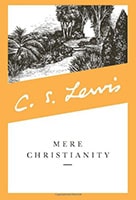
Hedonists do not deny that many different kinds of things can be good, including food, friends, freedom, and many other things, but hedonists see these as “instrumental” goods that are valuable only because they play a causal role in producing pleasure or happiness. According to hedonism, the only thing that is good in itself is pleasure (or happiness). Jeremy Bentham answered this question by adopting the view called hedonism. are made right or wrong by their actual consequences (the results that our actions actually produce) or by their foreseeable consequences (the results that we predict will occur based on the evidence that we have). which individuals or groups) we should aim to maximize and c) whether actions, policies, etc. In fact, however, the theory is complex because we cannot understand that single principle unless we know (at least) three things: a) what things are good and bad b) whose good (i.e. Utilitarianism appears to be a simple theory because it consists of only one evaluative principle: Do what produces the best consequences. that action or policy that produces the largest amount of good. In the language of utilitarians, we should choose the option that “maximizes utility,” i.e.

In general, whatever is being evaluated, we ought to choose the one that will produce the best overall results. that determine whether they are good or bad, right or wrong. Utilitarianism is a form of consequentialism because it rests on the idea that it is the consequences or results of actions, laws, policies, etc.

Among the things that can be evaluated are actions, laws, policies, character traits, and moral codes. Utilitarianism is a philosophical view or theory about how we should evaluate a wide range of things that involve choices that people face.

The task of determining whether utilitarianism is the correct moral theory is complicated because there are different versions of the theory, and its supporters disagree about which version is correct. Although utilitarianism has always had many critics, there are many 21 st century thinkers that support it. Their theory has had a major impact both on philosophical work in moral theory and on approaches to economic, political, and social policy. Bentham and Mill were both important theorists and social reformers. The most important classical utilitarians are Jeremy Bentham (1748-1832) and John Stuart Mill (1806-1873). Instead, utilitarians think that what makes a morality be true or justifiable is its positive contribution to human (and perhaps non-human) beings. They reject moral codes or systems that consist of commands or taboos that are based on customs, traditions, or orders given by leaders or supernatural beings. Utilitarians believe that the purpose of morality is to make life better by increasing the amount of good things (such as pleasure and happiness) in the world and decreasing the amount of bad things (such as pain and unhappiness).

Act utilitarians focus on the effects of individual actions (such as John Wilkes Booth’s assassination of Abraham Lincoln) while rule utilitarians focus on the effects of types of actions (such as killing or stealing). A key point in this article concerns the distinction between individual actions and types of actions. More specifically, the only effects of actions that are relevant are the good and bad results that they produce. Like other forms of consequentialism, its core idea is that whether actions are morally right or wrong depends on their effects. Utilitarianism is one of the best known and most influential moral theories.


 0 kommentar(er)
0 kommentar(er)
